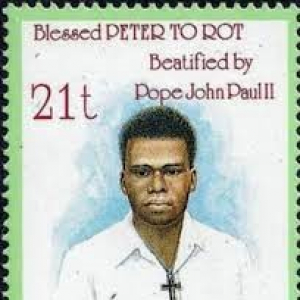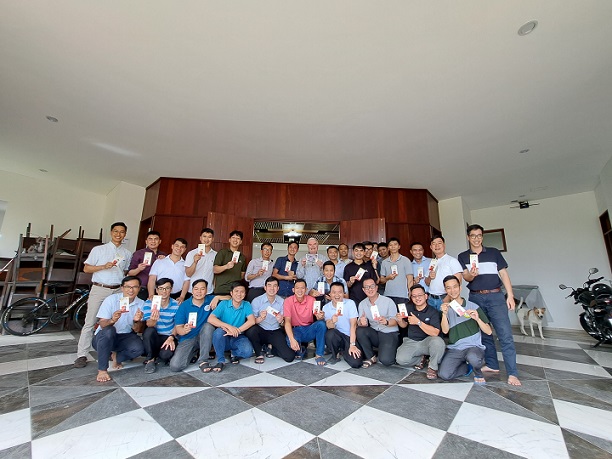Peter MALONE
Four Winters
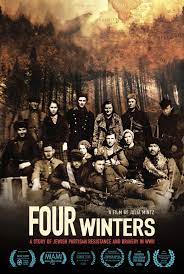
FOUR WINTERS:
A Story of Jewish Partisan resistance and Bravery in WW2.
US, 2022, 98 minutes, Colour.
Directed by Julia Mintz.
This documentary narrates episodes during World War II, 80 years after the events. It is a continuing reminder, lest we forget, of the disaster that was the Holocaust, the Jews in the concentration camps and the executions, and a reminder of the many Jews who were rounded up in towns, for instance in the Polish countryside, massacred and tossed into a mass grave. This film has documentary footage of this kind of massacre.
The film is narrated by seven survivors of partisan activity during the war, the interviews taking place in the United States, the introduction to the characters makes them seem very much of the grandparent generation but, as they continue with their narration, they come to vivid life, memories, sadness at the death of family, their own survival, becoming partisans, the activity of the partisans in the forests of northern Poland, a crusade against the Nazis.
While, in general, the information is familiar, we can appreciate the detail in which it is presented, not only from the witnesses themselves and their memories, but a great range of photographs and documentary footage of the period, one of the partisans mentioning how she had a camera to record the events.
The basic structure of the film is close-ups of the witnesses and their conversation with all kinds of documentary material inserted to bring their comments vividly to life – and, sadly, so much of death. It is a record of the Nazi invasions of towns in eastern Poland in 1941, the consequences for the concentration camps, so many of the survivors going into the forests and becoming part of the partisan groups, their interactions with the German military and police presence, with locals who joined to help the partisans or their collaborators with the Nazis.
Of the witnesses, Michael Stoll and Isadore Farbstein are expert storytellers without intending to be, the camera photographing them in close-up, Isadore looking down to the camera, Michael looking across. There is also a third man interviewed who has some stories. Of the four women, Luba Abramowitz and Gertrude Boyarski, looking very grandmotherly at first, begin to tell their stories, are very strong, intense and persuasive, in their storytelling and the repercussions on what it was like for them as young women to be part of the partisan war. Two other women witnesses speak, again intensely, but it lesser contribution than the other two women.
This is the kind of film that a wide audience can watch, to be reminded and/or to be informed – and a film which should be watched by younger generations, lest we forget.
Curve

CURVE
US, 2015, 85 minutes, Colour.
Julianne Hough, Teddy Sears, Drew Rausch.
Directed by Iain Softley.
This is a survival thriller. It is from Blumhouse pictures, producer Jason Blum, earlier in his career which, in the latter part of the 2010s, became much more significant, the company being more prolific, a higher profile with a variety of thriller and horror films.
The plot of this film is fairly basic. Julianne Huff plays Mallory, halfway by car between San Francisco and Denver where she is going for her wedding. Initially she is in communication with her sister by phone. As she drives, quietly happy, she decides to go aside journey in a picturesque canyon. However, the car simply breaks down, stops. As she tries to fix the car, a stranger arrives, courteous, able to fix the difficulty. As she drives off, she has second thoughts, or to offer him a lift – which he accepts. The stranger is played by Teddy Sears,, charming Mallory and the audience.
However, he begins to be quietly menacing, Mallory regretting her decision, and her trying to swerve the car on a mountain curve but its going over the cliff, the stranger being ejected, but Mallory caught in the car, upside down, her leg pinioned and unable to withdraw it.
The film has Mallory spending several days and nights in the car, surviving on a bottle of water, even cooking some flesh from a rat that she has killed. The stranger comes and goes, mouthing statements about fate and decisions, tricking her into telling the story of her first sexual encounter then ridiculing her, coming and going, giving her tools, even a saw suggesting that she amputate her leg. In the meantime, he speaks about going to a house nearby and receiving hospitality. And, it rains and rains, and the nearby river begins to flood.
There is a moment of hope when the local deputy stops to help the stranger with his car, thinks he hears cries but is persuaded that he does not.
Audiences will be wondering how Mallory will get out of her predicament – and the answer is with the waters rising, dislodging the car, sweeping it downstream, hitting against rocks and ejecting Mallory who swims to shore. As expected, the stranger has killed the members of the household, has tied up the deputy on cross beams and kills him. However, one young woman has survived, tied up, is freed by Mallory and, together, they are able to fend off the stranger, his falling over a balcony and his leg being fixed in an iron trap.
Perhaps nothing new, but a variation on the theme for those who enjoy this kind of thriller. Surprisingly, the film was directed by Iain Softley, a British director who had his main success in the 1990s with such films as Hackers, Backbeat, K-Pax.
Dangerous Remedy
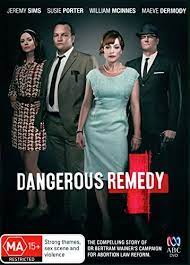
DANGEROUS REMEDY
Australia, 2012, 104 minutes, Colour.
Jeremy Sims, Susie Porter, William McInnes, Mark Leonard Winter, Maeve Dermody, Gary Sweet, Nicholas Bell, Peter O’Brien, Chris Haywood.
Directed by Ken Cameron.
This film, mater ABC television, is based on the activities, well publicised in Victoria in the late 1960s and into the 1970s, of Dr Bertram Wainer, his practice in Melbourne, but his espousing of the cause of abortion and legality. At the time, he had the support of pro-choice movements, was heavily criticised by church authorities, pro-life movements, the police and the Victorian government.
While there are some moments in the film showing anti-abortion protesters, and a cleric appearing on a television show with Dr Wainer and comments about the church, these are not to the fore in this drama.
Rather, the dramatic and moral issue is that of backyard abortions, the film opening with a horrifying experience, a casual abortionist, smoking, blood everywhere, harsh and tough assistant literally pushing people around, and the death of the young woman. Her family was associated with Bertram Wainer and he takes up the cause against backyard abortions, talking to members of the Medical Association, their public hesitations, but the revelation of the fact that many doctors were performing abortions in hospitals that were protected by payments to the police.
Jeremy Sims, actor and director, is believable as Dr Wainer. (There are scenes of the background with his former wife, and his bonding with his children, especially his young daughter, trying to explain what he was doing.) The other central character, Peggy, is played effectively by Susie Porter. She is first seen assisting in the office of the doctor who performs abortions and who supports Dr Wainer, Dr Troup, played by Nicholas Bell. But, women of the clinics give testimony that she passed on money and bribes to the police. And, she is seen in a relationship with one of the police department heads, Jack Ford, played by William McInnes.
Also central to the campaign is Jo, who ultimately became Bertram Wainer’s wife and continued his crusade, even after his death in 1987. Her boyfriend at the time, Lionel, Mark Leonard Winter, is a journalist who eventually becomes involved, pursuing leads, encouraging Wainer to have a gun (and, dramatically for the film, is killed by the police using Wainer’s gun).
Which means that most of the drama is about police corruption, especially with Gary Sweet, bribes, tip offs to the backyard butchers… One of the ways of combating the corruption is for Peggy to tape her phone calls with Jack Ford, Wainer going on television, newspaper articles, leading to violence, the death of Lionel, the setting on fire of the house where his ex-wife and children live.
Ultimately, with an appeal to the Solicitor General and the Minister, Sir Arthur Rylah (Chris Haywood), some further cover-ups, eventually police corruption is exposed and the police jailed. Ultimately, in the 21st-century, Victorian legislation concerning abortion is changed.
The director is veteran Ken Cameron, some significant dramas in the 1980s, Monkey Grip, Fast Talking, The Good Wife, then work on television from Brides of Christ and many serious over the next 20 years.
- A drama based on fact, 1969, the Medical Association, abortions and the law, doctors performing abortions undercover, police corruption and payment, backyard abortions?
- Audience knowledge of Dr Bertram Wainer? Scots doctor, military background, marriage and divorce, his children, his practice, involvement in abortion and legal issues? Targeted by the police? Threats to his family?
- Melbourne, 1969, the suburbs, homes, medical practice, the walls and backyard abortions, police precincts? Politics?
- Audience response to abortions, legality and illegality? The history of abortions in Australia, the state of Victoria? Discussions about legality, discussions about morality, the film not focusing on the attitude of the churches, glimpses of protesters? Audience response to such widespread police corruption, bribes? And Sir Arthur Rylah and the Victorian government?
- Jeremy Sims as Bertram Wainer, age, experience, migration, relationship with Barbara, with his children, Felice and her accompanying him, the protests, the abortion, his explanations, the fetus and his sober attitude towards abortion? His presentation to the doctors association, objections, issues of legality? Dr Troup and his support?
- The scene of the backyard abortion, the young woman, Barry Smith, casual, equipment, smoking, the blood, the harsh assistant? The young woman’s death? Later tracking him down, his being warned by Matthews, the bribes, his fleeing, the body, allegedly dead, his reappearing, persuaded by Wainer, by Peggy, the phone calls, taped, his giving testimony against Matthews and the other police?
- Jo, her praise of Wainer, campaigner, her relationship with Lionel, journalist, Wainer meeting them, Lionel and his hesitations, the need for facts, the attitude of editors, the danger of being sued? His becoming involved, presence at meetings, the information, writing it up? His relationship with Joe, her attraction towards Wainer? The issue of the gun, is recommending Wainer have a gun, the gun dealer, the dangers from the police, Lionel, his death, the irony of Wainer’s gun at the crime scene?
- The introduction to Peggy, to Jack Ford, the relationship? Peggy, assisting Dr Troup? The woman waiting abortion, her testimony, the information about Peggy passing bribes to the police? Jack Ford, on the take, his role, his ambitions, two in charge of homicide? Relationship with Matthews? The younger police? The range of bribes?
- Wainer, his gathering the doctors who performed abortions together, their paying bribes to the police, getting them to testify against the police? Isn’t on television, the interviews, the cleric, the doctor? The police watching? The newspaper articles, the headlines?
- Peggy, the discussions with Wainer, Ford and his hitting her, her cancer, her decision to cooperate, the difficulties, Wainer hesitating at times to trust her, the phone calls, her phone being tapped, recording the calls, Ford and his reaction?
- Jo, pretending to be pregnant, going to Barry Smith, the other patient, waiting for the police to come, their being tipped off, Ford arriving? Jo and her attitude towards Wainer, his resistance? The information about their later marriage and her continuing his campaigns?
- The scenes with his family, the young boys, his bonds with them, with Felice, the attack on the house, the fire, wanting to rescue Felice, Barbara and her attitudes?
- The final expose, taking the documents to the Solicitor General, his hesitation, Sir Arthur Rylah, the hold over him, the investigation – and the final information about the police going to jail? And Peggy surviving her cancer? Wainer dying in 1987?
- The significance of these events of 1969 following on the change of the law in Victoria? And the expose of police corruption?
Across the Universe

ACROSS THE UNIVERSE
US, 2007, 127 minutes, Colour.
Evan Rachel Wood, Jim Sturgess, Joe Anderson, Dayna Fuchs, Martin Luther, TV Carpio, Angela Mounsey, Robert Clohessy, Dylan Baker, Linda Emond, Bill Irwin.
Directed by Julie Taymor.
An intriguing question is to ask who is the target audience for this film. The poster is rather psychedelic, taking us back forty years. But, who under 30 to 40 is automatically going to want to go back to those times of forty years ago? Clearly, those who have a hankering after the 1960s will be keen to see the film – and perhaps those for whom the 60s were a mystery or a time of change, war and protest that has had a traumatic effect.
Whatever the case, this is all highlighted and underlined in Across the Universe. The title is from a Beatles’ song which features towards the end but, surrounding it, are more than 30 other Beatles songs, some very well known, others much less well known, but all picked to offer lyrics which explain the characters and the plot.
The screenplay was written by the long-standing British team of Dick Clement and Ian Le Frenais who were writing for film and television in those times. Their angle is quite nostalgic. The director is the American, Julie Taymor, who made Titus and Frida and is famous for directing the stage version of The Lion King. She has a musical and lavish theatrical background which is strongly to the fore here. One can easily imagine a stage version of Across the Universe. The costume design is already done (a creative use of masks and other devices used on stage in The Lion King). Some very stylised sets and action pieces are ready and are inserted here into the realism of the rather straightforward plot:
Liverpool lad (whose name is, hey, Jude) goes to America meets a young girl, Lucy (and, yes, it sung during the cosmic final credits) with a brother, Max, who is drafted (in what looks like a good parody of Hair) and serves in Vietnam. They all live in New York with a singer and her guitar-playing boyfriend. Lucy gets involved with the peace movement. Jude is deported, but… ‘All you need is love’.
Beatles’ fans may relish the opportunity to find the characters frequently bursting into song – though the principals sing well, there are some interpretations which may raise eyebrows from Joe Cocker and Bono (especially eccentric and aping the Beatles Magical Mystery Tour, Transcendental Meditation phase).
But, what the film does do is take us back to an overview of the 1960s in the US, Vietnam, protest, drugs, the hippy experience, the beginnings of New Age, perhaps a more vigorously radical period than our own (though the references to Iraq are unavoidable).
Wikipedia List of 33 Beatles compositions on the soundtrack in order, including three compositions heard twice, totalling 34 individual music cues:
- "Girl" — Jude
- "Helter Skelter" — Sadie
- "Hold Me Tight" — Lucy, Molly, and Prom Night singers
- "All My Loving" — Jude
- "I Want to Hold Your Hand" — Prudence
- "With a Little Help from My Friends" — Max, Jude, and Dorm buddies
- "It Won't Be Long" — Lucy and Students
- "I've Just Seen a Face" — Jude
- "Let It Be" — Gospel singer, Jojo's brother, and Church choir
- "Come Together" — Pimp, Bum, Mad Hippie, Jojo, and Prostitutes
- "Why Don't We Do It in the Road?" — Sadie
- "If I Fell" — Lucy
- "I Want You (She's So Heavy)" — Max, Sadie, Prudence, Uncle Sam, and Soldiers
- "Dear Prudence" — Sadie, Jude, Lucy, and Max
- "Flying" (instrumental) — The Secret Machines
- "Blue Jay Way" — The Secret Machines
- "I Am the Walrus" — Dr. Robert
- "Being for the Benefit of Mr. Kite!" — Mr. Kite
- "Because" — Lucy, Jude, Max, Sadie, Prudence, and Jojo
- "Something" — Jude
- "Oh! Darling" — Sadie and Jojo
- "Strawberry Fields Forever" — Jude and Max
- "Revolution" — Jude
- "While My Guitar Gently Weeps" — Jojo and Jude
- "Across the Universe" — Jude (interwoven with "Helter Skelter")
- "Helter Skelter (Reprise)" — Sadie (interwoven with "Across the Universe")
- "And I Love Her" (brief extract incorporated into the orchestral score during the "Across the Universe"/"Helter Skelter (Reprise)" sequence, also sung by McCoy in a deleted scene)
- "Happiness Is a Warm Gun" — Max, Bang Bang Shoot Shoot nurses, and Soldiers
- "A Day in the Life (Instrumental)" — Jeff Beck
- "Blackbird" — Lucy
- "Hey Jude" — Max, Jude's mother, Children and Immigrants
- "Don't Let Me Down" — Sadie and Jojo
- "All You Need Is Love" — Jude, Sadie, Prudence, Max, and Jojo
- An ambitious musical? The use of the Beatles songs? The characters, situations? For Beatles fans?
- Some critical acclaim yet severe failure at the box office initially?
- The work of the director, stage background, stylised costumes and masks, theatrical tone?
- The introduction to Jude, work on the wharf, relationship with his mother, his girlfriend, the farewell, going to the US, the quest to find his father, tracking his father down, discovering he was a janitor, the discussions, the invitation to Thanksgiving, his father coming to get him out of jail? His encounter with Max, bonding, going home to the family, the discussions at the table, politics, ambitions, Max dropping out, the discussions with Lucy?
- The bond with Max, Max and his wealthy background, able to pay for drinks, parties? About to be called up? His attitude towards the Vietnam war? Decision to leave for New York, Jude going, finding the apartment, Sadie as the landlady, the various borders? Life there, Sadie and her singing, the clubs? Jojo, his story, guitar, arriving in New York, at the apartment, accompanying Sadie?
- Lucy, leaving home, her mother and conventional Ohio life? Finding Max and Jude, the attraction between Jude and herself, the relationship? Her getting jobs waitressing? Becoming involved with protests against the Vietnam war?
- Max, the advice so that he would not be called up, its not working, the musical background for the medical investigation, uniforms, the posters for call up coming alive, parallels with Hair? The scenes in Vietnam, Max, the swamps, under fire, deaths? His being wounded, returning home, recuperation?
- The use of the songs for Jude and his character, Jim Sturgess singing, tone, the background from Liverpool, the Beatles lyrics and melodies? Lucy, Evan Rachel Wood and her singing, character? Moving from character into the social concerns, the visualising of the protests, Lucy in danger, Jude being beaten, in jail, everybody freed, his father coming?
- Lucy, her greater involvement in the protests, the group, Jude and his being upset, her not coming to Sadie’s concert, Lucy mystified, the break between the two, Jude and his being deported to England? The group making bombs, the explosion, Lucy absent?
- Sadie, her story, personality, singing, the relationship with Jojo, the agent and her getting a recording contract, at the clubs, Jojo spoiling her performance and her walking out? The reconciliation and performance? On the roof, the police coming and moving them on, Jude and his return to America, his girlfriend having the other boyfriend, his mother seeing him off? His going onto the roof, hiding from the police, singing, Lucy hearing him, the reconciliation? All you need is love…?
- The visual style of the film, the colour palette, the stylised sequences, the swimming in the underwater sequences, the war sequences, and the psychedelic final credit sequences?
- The status of the film later, its appeal in later years?
Bull/ UK

BULL
UK, 2021, 86 minutes, Colour.
Neil Maskell, David Heymann, Kevin Harvey, Jason Milligan, Lois Brabbin-Platt.
Directed by Paul Andrew Davies.
Bull is a small budget, £500,000, brief, filmed in 18 days, but a powerful and challenging film experience. It is the work of Paul Andrew Davies, writing and direction, (London to Brighton, The Cottage).
This is a revenge film, focusing on the character of Bull (and a convincingly strong performance by Neil Maskell). It is very much a contemporary setting – but, there is a reminder of the Jacobean dramas of the 17th century, the same kind of plot, the same kind of violence, motivations, revenge, but all in the elaborate costumes of the period. So, a similar plot, but in rough contemporary settings and dress.
The structure of the film is not linear, introduction to Bull, then many flashbacks, the audience having to work out what was contemporary and what was flashback, Bull is working for Norman (a powerfully evil performance by David Heymann), a scene menacing the butcher and Bull and his violent butchery with the man’s hand and fingers. But, there are happy flashbacks, Bull and his marriage to Gemma, his love for his son Aiden, doting on him, playing with him, wanting custody. But there are also episodes where his tracking down Norman and his thugs, menacing them, killing them, eventually trying to track down Norman and Gemma.
Some audiences might find the story, Bull’s character and behaviour, the graphic killings too much to take – but, in the context of a well-written and well-acted vengeance drama, they have their place.
- Revenge film? Brief? Intense?
- The settings, the British city, streets, homes, caravans, fairgrounds, which is an industry, farms? Musical score?
- The structure of the film, the introduction to Bull, linear and non-linear, the flashbacks, interweaving, action, motivations, vengeance? And the revelation at the end?
- The violence in the film, direct, graphic, in context? Bull as a hitman, intensity, cruelty, impulse, motivations, satisfaction and after effect? His killing of his enemies? The fire, his own death?
- Bull, his age, background, hitman, seeing him with the initial shooting in the street? His marriage to Gemma, Norman as his father-in-law, his love for his son, Aidrn? The happy scenes with his son, playing, talking, meals, at the fairground, sharing with him? Changing attitudes towards Gemma? Her affairs? Working for Norman, the scene at the butchers, the threats, his cutting off the man’s fingers?
- Bull, wanting custody of his son, the confrontation with Marco, and killing him, the knife in his throat? The threats to Clive, with his boys, going to the fairground, the setup with Gary? On the rollercoaster, killing Gary? The pursuit of Gemma, the drug dealer, the bar, taking him to the main dealer, the confrontation, sawing off his arm? The information about Gemma?
- The confrontation with the Gemma, the past, the relationships, their son? Norman tracking him down, prepared for confrontation, Bull ambushing him, stabbing him, Norman with the gun, shooting Gemma? Bull sitting on Norman, smothering him? Shooting Gemma?
- Norman, the boss, the deals with the butcher, threats, cutting of his fingers, signing the document? Norman and his relationship with his henchmen, Gary and his affair with Gemma, Marco and his wife and son, Clive and his children? The scenes of happiness with barbecues and meals? The change? Bull and his pursuit to find Aiden?
- Finding Aidan, adult, drug addict, taking him to the church, the confrontation with the vicar?
- The gradual change? In Balls eyes, the black, the revelation that he had been killed, and demon of revenge?
Hombre de Accion, Un/ A Man of Action

A MAN OF ACTION/ UN HOMBRE DE ACCION
Spain, 2022, 111 minutes, Colour.
Juan José Ballestra, Luis Callejo, Liah O'Prey, Miki Esparbe, Alexandre Blazy, Ben Temple, Fred Tatian, Monica Lamberti,
Directed by Javier Ruiz Caldera.
This portrait of an enterprising character is based on actual characters and facts. It is a drama on the life and the exploits of Luis Urtubia who died in 2020.
The setting is Spain, initially, the war. And the focus on the young boy, his place in the family, the death of his father and his having to move to France. But, the drama also shows the adult Luis and his colleague in action at the Paris airport, collecting money, throwing it about to block police pursuit.
Luis Urtubia was a bricklayer, and continued with that work, but it also provides a cover for his growing commitment to anarchy and to anarchist groups. And this involved many bank robberies, and the distribution of the money to causes the anarchists believed in.
The other central character of the film is the police inspector, Costello, who patiently, sometimes impatiently, pursues the bricklayer over the years, talking with him, meeting with him, threatening him, surveillance. And, eventually, success with the anarchist’s imprisonment.
Ironically when he leaves prison, he is paid in travellers cheques rather than cash – which leads to an elaborate fraud scam, with his brother-in-law who worked at the French Mint, with various associates, forging travellers cheques and cashing them at the same time all around France. This is Citibank and the American executives are upset, send a representative to France, eventually set up a sting to trap Urtubia. Urtubia believes the fraudster and is trapped.
The other line of the plot is his relationship with his girlfriend, participant in the activities, bearing him a daughter, but eventually becoming exasperated by his commitment to his cause and his neglect of his family, her moving to Columbia – and his intention to move there. But, after serving his time, he does move to Columbia, separated from his wife, but reunited with his daughter, dying in 2020.
- The title? Lucio and his work as a builder, tough action? His being a man of action and anarchist?
- Based on a true story, the career of Lucio, his background, as a boy, robberies, adult, builder, joining the anarchist, their philosophy, action, the robberies, his participation, leadership, connections, the meeting of and, at the University campus, her joining with him? The pursuit of Castello?
- The opening, Paris airport, the money, the pursuit, throwing the money away, escaping the pursuit? Building up to the sequence of the middle of the film? The second part of the film, 10 years later and beyond?
- The Spanish settings, the 40s, the family, Lucio and his father, his father’s illness, the morphine, the refusal of the pharmacist? The funeral?
- Lucio growing up, the robberies, connections, going to France? Staying with his sister, with Patrick? On the building site, working too hard, his friends, the anarchist meeting? The police? His believing in anarchy, not being told, concern about the poor? The reputation of Quico? Mentoring Lucio? The robberies, his wetting himself, falling in the leaping? Quico and his support, the division of the money, supporting themselves? Building up his career? The friendship with a story and from the building site? Patrick and his work at the Mint?
- The pursuit by Costello, suave personality, patient? Paris airport? Eventually apprehending him, Lucio going to jail, in jail, saving Charlie, the fight? The lawyer, the delay in release, Anne pregnant, giving birth, Juliet? Eventually getting out? His joy with his daughter?
- His team, a story and, Charlie, petite Jeanne, Patrick – Lucio and the travellers cheque on release, disbelief, at the shop, the change in cash? His idea? The team, the count of the travellers cheques, Patrick and the setup, perfecting the counterfeit cheques? Trying them out, cashing them? The increase in production, the plan of everybody cashing them at midday to delay the checking?
- Citibank, France, the US, the meetings in the US, Barrow, his going to France, confronting Costello, demanding action?
- Anne and Juliet, some alienation, the plan to go to Bolivia, challenging Lucio, his one last job?
- The meeting with Tony Greko, the setup by Charlie, suspicions, following him, believing him, the meeting at the restaurant, the setup, the arrest?
- Holding Lucio, the ideas of his lawyer, the Court sequence, the objections because irregularities in the charge, his being released? Lucio confronting Patrick and suspicious? The discovery that Tony Greko was police, the setup, Charley taking the money and going to South Africa?
- Lucio, going to Bolivia, reunited with an and Juliet?
- The postscript, the photo of the real Lucio, dying in 2020, separated from And but friends, his anarchist police? And the impact of his counterfeiting scams as a sign of anarchy and activity, undermining the power of the banks?
Golden Jubilee of Profession, Phil Reilly, Jac Boelen, Chris Murphy. January 13th
Golden Jubilee of Profession, Phil Reilly, Jac Boelen, Chris Murphy. January 13th
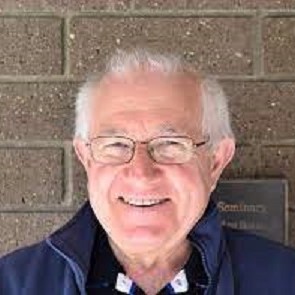
January 13th is a day of celebration for Phil, Jac and Chris – novitiate at Croydon, 1972, with Harvey Edmiston as Novice Master.
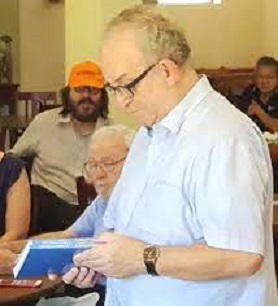
And thanks to these men for their ministries, including for Phil, superior of the Chevalier Community and management at Treand House, now at Erskineville parish, including for Jac, long service (understatement) at Kensington Monastery and time at the General House in Rome, including for Chris, teaching at Downlands, parish work at Kensington, Kippax, Henley Beach, Blackburn, now at St Joseph’s Kensington.
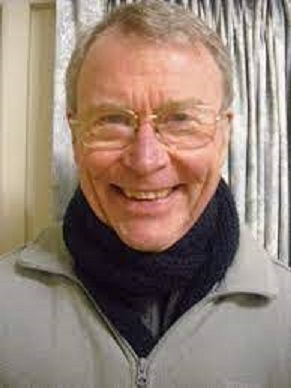
And remembering Donal O’Sullivan RIP who was also professed this day.
Some Significant January Days for the Chevalier family, January 2023
Some Significant January Days for the Chevalier family, January 2023
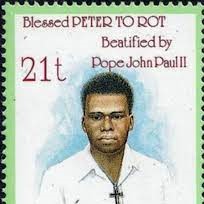
Beatification Cause, Peter To Rot, January 13th
MSC Pioneers:
Archbishop Couppe MSC, See January 15th and January 31st
Archbishop Navarre, January 16th
Fr Huber Linckens, January 29th
1 January,
Motherhood of God

6.January,:
Feast of the Epiphany - one of Chevalier's favourite feast. The true nature of God is manifested through the flesh of the infant Jesus.
10 January, 1854
Father Maugenest, 1829-1919, is appointed curate of Issoudun.
10 January, 1979
The FMI Sisters ~ The Daughters of Mary Immaculate ~ founded by Bishop Louis Couppé, MSC, in Papua New Guinea in 1912, elect their first General Superior. Since their foundation a FDNSC sister had been their 'Superior'.
12 January, 1877
The first MSC Constitutions are approved for 10 years by Rome.
13 January, 1985
The cause for the canonization of the lay Papua New Guinean catechist, Peter To Rot, is opened.
13 January,
World Day for Migrants and Refugees ... Chevalier responded to the evils of his time. In our time, we respond to the inhumanity of our world ... with compassion of the Heart of Jesus.
15 January, 1927
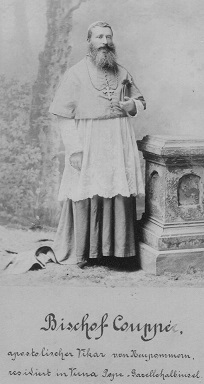
Archbishop Couppé, MSC, who died 20 July 1926 at Douglas Park, Australia, is reburied at Vunapope, Papua New Guinea.
15 January, 1930

Marie-Thérèse Noblet dies. She was Mother of the Handmaids of the Lord, who were founded in Papua New Guinea by Bishop Alain de Boismenu, MSC, in 1920.
16 January,
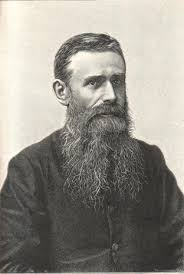
Anniversary of Archbishop Navarre, MSC, vicar apostolic of British New Guinea.
20 January, 1925
The cause of beatification of Bishop Henri Verjus and of the Baining martyrs is introduced.
21 January, 1852
The young Father Chevalier receives his second appointment after ordination. He becomes assistant priest at Châtillon-sur-Indre.
21 January, 1907
The aged Father Chevalier and his curates are expelled from their home, the presbytery in Issoudun.
22 January, 1811
Jean-Charles Chevalier and Louise Ory, the parents of Father Jules Chevalier, are married in Richelieu.
24 January,
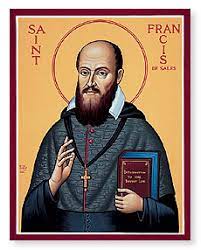
Feast Day of St Francis de Sales (1567-1622).
The 'heart' is the central image for Francis and Jane de Chantal, in their attempt to portray who God is, who the human person is and how they are intimately related. Both these figures appear in stain glass windows in the Richelieu Church.
29 January, 1861
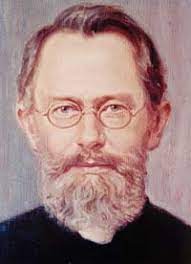
Birth and Baptism of Father Hubert Linckens, MSC, in Wijlre, Netherlands. Linckens is the historical founder of the Missionary of the Sacred Heart Sisters of Hiltrup.
31 January, 1885
The first five Daughters of Our Lady of the Sacred Heart arrive in Australia, accompanied by Fathers Couppé, and Verjus, and three Italian Brother Novices.
Dear Friends… New Year greetings from Saigon, Uncle Bob
Dear Friends… New Year greetings from Saigon, Uncle Bob
Our own gift envelopes
This letter is being posted as Bob Irwin is flying home to Sydney - he will return to Vietnam to join the 20 years' anniversary celebrations
I hope 2023 has got off to a good start for you and yours. When you read this, I may be already in Oz, as I am due back in Sydney on the 10th January. Hopefully, after some months in Australia, helping out where I can, especially with the Institute and schools, I will head back to Vietnam in August once again.
2023 is already looking like a busy year for MSC Vietnam. I t is the 20th anniversary year, which hopefully will include registration with the government here, the completion of some 30 bedrooms in the student house, several ordinations in June, and major celebrations for the anniversary especially on August 15, which will also include a number of students taking their final vows. If you have any thoughts on visiting Vietnam soon, try for August 15!
For my family it will be the year of the big O (with apologies to Roy Orbison…only the Oldies will get this). My sister Helen turns 80, her son Ben goes to 50, and in May, Phil Hicks and I will celebrate 50 years of priesthood. All this with the 20 years for Vietnam, and also 20 years for Chevalier Institute.
Currently the students are finishing exams, as their semester races towards their TET holidays. Vietnam has new year twice: Jan 1 and then TET (similar to Chinese New Year). At TET, as many people as possible head back to their home towns and family, and our guys are no exception. One of the customs around TET time includes the gifting of money in red envelopes, and because I will not be here then, I “had to” give out “red” envelopes (MSC ones by Tinh) at my farewell on Sunday 1st. Cost me 3,000,000…30 envelopes with 100,000 in each! VN dong, of course….c$5/6 Aust. each…all part of the fun.
Christmas here is a mixed bag. Christmas decorations are everywhere, Catholics celebrate as we might in Oz, but the country doesn’t stop. Some schools have a day off, some don’t! The MSC students had a beautiful vigil liturgy on Christmas eve, then a large gathering of MSC, MSC sisters and OLSH and lay MSC, were all guests at a beautiful new home of one of the Lay MSC for a house blessing, Christmas mass, and huge noisy catered lunch, which included gift giving, Santa’s helpers etc …exhausting, but quite a hoot!
My Cambodia trip for the final visa included the usual bribes, but I saw something different here in Saigon recently: police pulling over mainly smaller trucks and measuring them with a tape measure…odd, I thought, but then I read later that more than 70,000 vehicles in Saigon and surrounds did not pass registration, including for size discrepancies, but with bribes they did.Yikes!
Lots of love. Take care, God bless your year. See you very soon. (Uncle) Bob
RIP, Tony Young MSC
RIP, Tony Young MSC
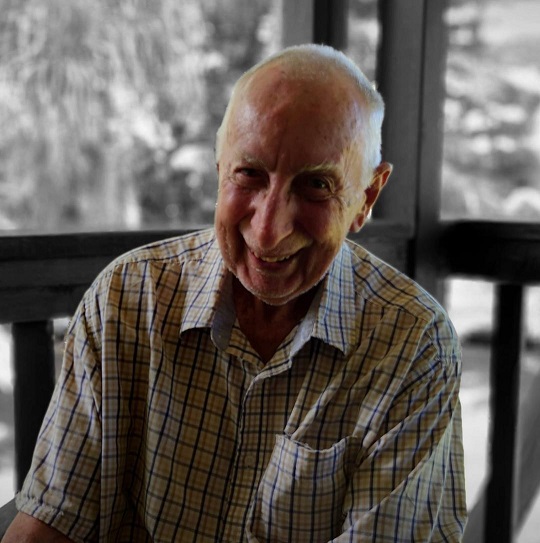
Tony Young has died, Sunday evening, after a short time in hospital, January 8th. He was a veteran missionary, almost six decades, most of them in Eastern Papua. Tony was 87 years old, professed on February 26th 1956, studies at Croydon Monastery, ordained in Melbourne, July 21st 1962 – almost 67 years professed, 60 years ordained.
Tony will be remembered for his quietly genial personality, his missionary vision, especially with the establishing of Hope Academy in Eastern Papua for young students to study with current technology and online.
May he rest in peace.

